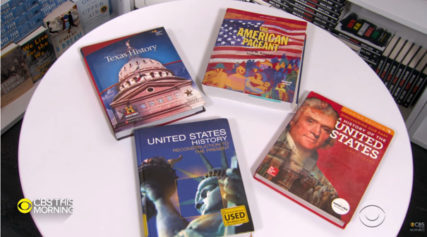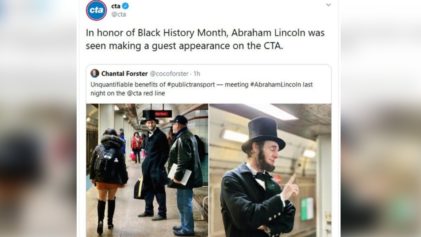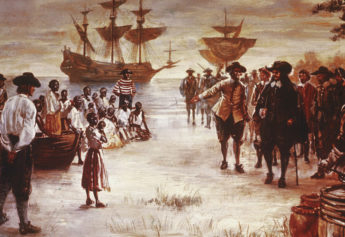As part of the Republican Party’s new effort to woo black voters, Kentucky Senator Rand Paul went to Howard University yesterday and presented a questionable version of history to explain why black people should be flocking to the Republican Party.
Paul seemed to expect that the crowd at the historically black university wouldn’t be aware that the Republicans were the party of Lincoln and switched over to Democratic allegiance during the New Deal and the Great Depression.
As Elspeth Reeve wrote in The Atlantic Wire, Paul’s version of history went something like this: “Republicans believed in emancipation and abolition and were radically not racist in the 19th century and… let’s just skip over the last half of the 20th century.”
“Paul said that Republicans saw a significant drop in support from black people from the 1960s on, not because of the party’s calculation that it could win elections by appealing to the prejudices of racist Southerners, but because Democrats offered a bunch of handouts during the Great Depression,” Reeve wrote.
This is the way that Paul actually said it:
“I think what happened during the Great Depression was that African-Americans understood that Republicans championed citizenship and voting rights, but they became impatient for economic emancipation. African-Americans languished below white Americans in every measure of economic success and the Depression was especially harsh for those at the lowest rung of poverty. The Democrats promised equalizing outcomes through unlimited federal assistance ,while Republicans offered something that seemed less tangible — the promise of equalizing opportunity through free markets.”
Paul didn’t realize that appearing at the nation’s largest HBCU, where students spend years parsing the tiniest details of African-American history, and offering up a tainted, twisted version of black history in the last century is like walking into the Kremlin and telling the Russians that the Cold War never happened.
Reeve pointed out that Paul’s description of Democratics basically using handouts to woo black voters sounded suspiciously similar to Mitt Romney’s explanation for why he lost the 2012 election — that Obama won because he offered “gifts,” “especially the African-American community, the Hispanic community and young people.”
Paul is getting credit in some circles for his effort to go before this black crowd and make the case. In other words, for just showing up. But it’s going to take a great deal more than just showing up to win back black support for the Republican Party.
In response to a student’s question, Paul even tried to tell the crowd that there was no difference between the Republican Party of Abraham Lincoln and that of Ronald Reagan.
“People perceive those as being completely different parties,” Paul said. “The argument that I’m trying to make is that we haven’t changed. We don’t talk about it…. There are some of us who haven’t changed, who are part of that party that you liked, who truly believe that Reagan was still part of that. Who don’t see an abrupt difference.”
When Paul couldn’t remember the name of the first black Republican senator, he seemed startled when the crowd provided it for him.
“Edward Brooke!” the students shouted when Paul said he was “blanking on his name.”
Paul tried to catch them with another bit of black historical trivia.
“If I would have said, ‘Who do you think the founders of the NAACP were? Do you think they were Republicans or Democrats?’ Would everybody in here have known they were all Republicans?”
“Yes!” the crowd shouted.
“Alright, alright,” Paul admitted, “you know more than I know.”
Paul even tried to rewrite his own history, claiming in his speech that he “never came out in opposition to the Civil Rights Act.” But MSNBC host Rachel Maddow refuted that claim on her show last night, saying he questioned the Civil Rights Act on her show in 2010.


